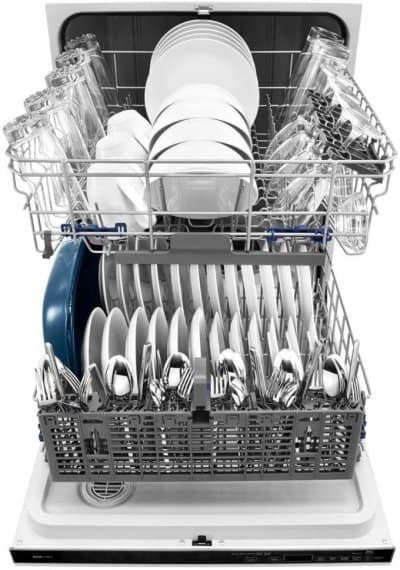Table of Contents
Moldy Dishwasher: Causes, Prevention, and FAQs
A dishwasher is an essential appliance that helps make our lives easier, but it can become a breeding ground for mold if not properly maintained. Mold growth in a dishwasher not only affects its performance but also poses potential health risks. In this article, we will explore the causes behind a moldy dishwasher, discuss effective prevention methods, and answer some frequently asked questions to help you keep your dishwasher clean and mold-free.
Understanding the Causes of Mold Growth in Dishwashers
- Poor Ventilation and High Humidity:
Inadequate ventilation and high humidity levels inside the dishwasher create a favorable environment for mold growth. The combination of moisture, warmth, and the presence of food particles provides an ideal breeding ground for mold spores to thrive.
- Food Residue and Debris:
Leftover food particles and debris can accumulate in the dishwasher’s crevices, filter, or spray arms. These organic materials serve as nutrients for mold growth, promoting its development over time.
- Standing Water:
If water remains stagnant in the dishwasher, it can contribute to mold growth. This may occur due to clogged drains, malfunctioning pumps, or improper loading that obstructs water circulation.

Effective Prevention Methods for Mold in Dishwashers
- Regular Cleaning and Maintenance:
To prevent mold growth, it is crucial to clean the dishwasher regularly. Remove food debris, clean the filter, and wipe down the interior surfaces using a mixture of vinegar and water or a dishwasher-safe cleaning agent. Pay attention to the door gasket, spray arms, and other hidden areas where mold can thrive.
- Ensuring Proper Ventilation:
Promote air circulation and reduce humidity levels by leaving the dishwasher door slightly ajar after use. This allows moisture to evaporate, preventing the accumulation of moisture that encourages mold growth.
- Loading and Unloading Techniques:
Proper loading and unloading of dishes ensure unobstructed water circulation and drainage. Avoid overcrowding the dishwasher and ensure that the spray arms can rotate freely. Additionally, scrape off excess food from dishes before loading to minimize the presence of organic materials that support mold growth.
- Regular Inspections and Repairs:
Inspect the dishwasher regularly for any signs of leaks, clogs, or malfunctioning parts. Repair or replace damaged components promptly to prevent moisture buildup and minimize the risk of mold growth.
Can I use bleach to clean my dishwasher?
While bleach can effectively kill mold, it is not recommended for regular dishwasher cleaning. The harsh chemicals in bleach can damage the dishwasher’s components over time. Instead, opt for milder cleaning solutions like vinegar or dishwasher-specific cleaning agents.
Why does my dishwasher smell bad even after cleaning?
Persistent bad odors in the dishwasher could indicate hidden mold or bacterial growth. Thoroughly clean the filter, spray arms, and other hard-to-reach areas. Consider using dishwasher cleaning tablets designed to eliminate odor-causing bacteria. If the problem persists, it may be necessary to contact a professional for a more thorough inspection and cleaning.
Is it safe to run an empty dishwasher with bleach to remove mold?
Running an empty dishwasher with bleach is generally not recommended. Bleach can be corrosive to the dishwasher’s internal components, and inhaling bleach fumes may pose health risks. It is best to follow manufacturer guidelines and use dishwasher-safe cleaning agents or natural alternatives like vinegar.
Can mold in the dishwasher cause health problems?
Mold in the dishwasher can potentially cause health problems. Exposure to mold spores can trigger allergies, respiratory issues, and irritate the eyes, throat, and skin. Individuals with asthma or compromised immune systems may be more susceptible to the negative effects of mold. It is essential to address mold growth promptly and take preventive measures to maintain a clean and mold-free dishwasher environment.
Conclusion:
A moldy dishwasher not only affects its performance but also poses health risks. Understanding the causes of mold growth, implementing effective prevention methods, and addressing common concerns through FAQs can help you maintain a clean and mold-free dishwasher.
By following regular cleaning routines, ensuring proper ventilation, and adopting good loading and unloading practices, you can enjoy the convenience of a functional and hygienic dishwasher for years to come.
Stay proactive in identifying and addressing any signs of mold growth, and seek professional assistance when necessary to ensure optimal dishwasher performance and the well-being of your household

